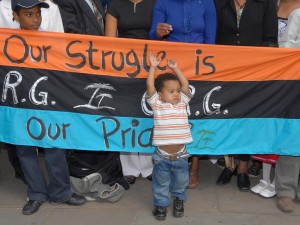37th Meeting of the Chagos Islands (BIOT) All-Party Parliamentary Group – Co-ordinator’s Summary
Posted in APPG, FCO, USA on July 26th, 2013 by Mark Fitzsimons – Be the first to commentThe Chagos Islands (BIOT) All-Party Parliamentary Group held its 5th Annual General Meeting and 37th meeting on 16 July.
The Group re-elected the current office holders (Chairman Jeremy Corbyn MP; Vice-Chairs, Lord Avebury, Lord Ramsbotham, Andrew Rosindell MP, Henry Smith MP; Secretary, Andrew George MP). David Snoxell was reappointed Co-ordinator and Richard Gifford Legal Adviser – the Group thanked them for their continuing support and service to the Group.
The Group considered recent parliamentary questions (PQs), interventions in debates and correspondence with Foreign and Commonwealth Office (FCO) Ministers since its last meeting on 5 June. They felt that progress in tackling the issues was at last being made. Thanks were recorded to Baroness Whitaker and Lord Avebury for maintaining the correspondence with Baroness Warsi which had gradually exposed the weakness of FCO arguments.They welcomed the written statement to Parliament of 8 July by Mr Simmonds (Update on the BIOT Policy Review) announcing a new Feasibility Study into resettlement which the Group had been advocating ever since its first meeting in January 2009. They commended the FCO for reversing its position. Members were not persuaded that resettlement would entail a “heavy ongoing contingent liability for the UK tax payer”. The FCO could approach the EU,US, UN, Commonwealth, NGOs and the private sector to share the costs. Nor were they persuaded that the US was opposed to resettlement since the US had never said so publicly, although invited by the APPG on several occasions to explain any defence and security reservations they might have.
Members were concerned that the timing for the Feasibility Study would go beyond the May 2015 general election. They agreed that decisions could not be left to a new government and that the study must be ready by the summer recess 2014 to give time for Ministers to take decisions on resettlement and implement them well before the election. The Group considered a draft letter to the Foreign Secretary, setting out its views on the Review and Feasibility Study. This would be dispatched before the summer recess on 18 July but it would not at this stage be made public. The Group asked the Chairman to table a number of PQs about different aspects of the Review and Feasibility Study. The Chairman said he would ask for an adjournment debate for the September session and Baroness Whitaker would ask for a similar debate in the Lords in October.
The next meeting will be held on 9 October.





